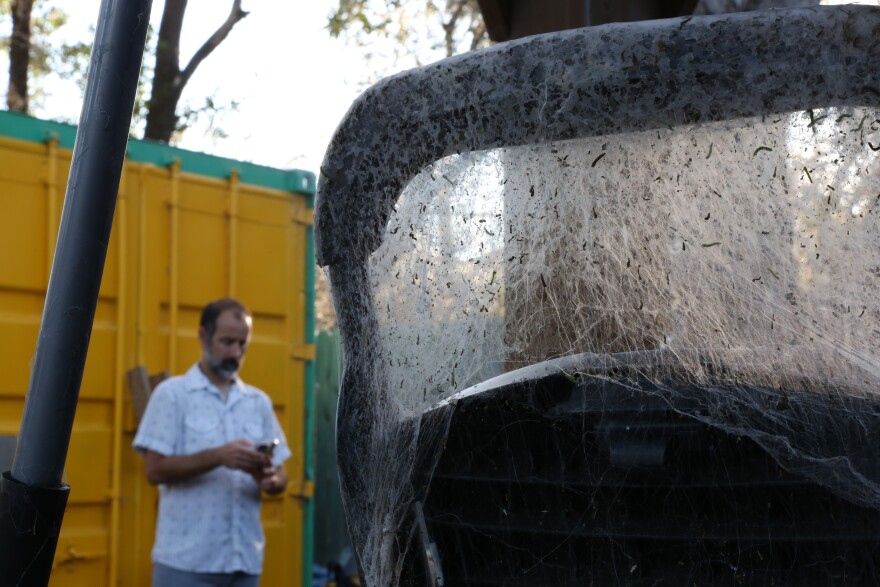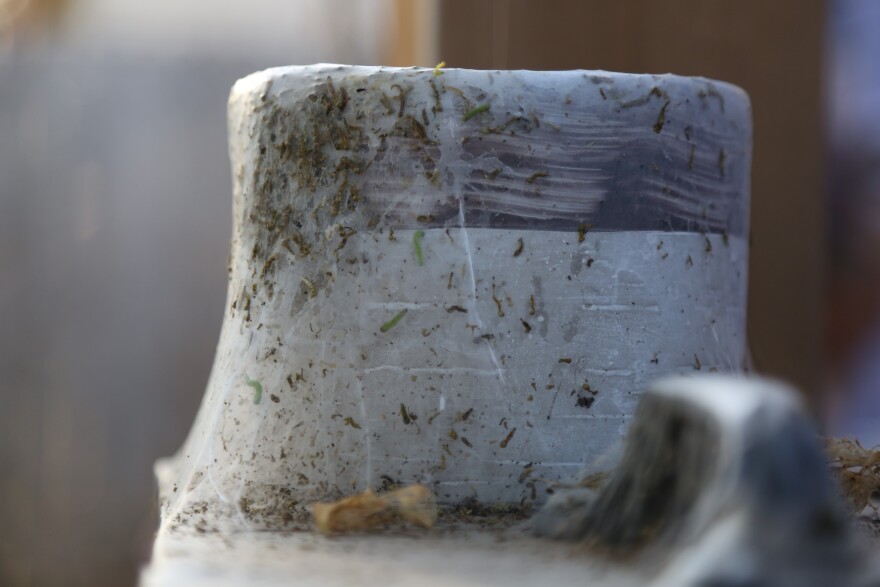Residents have found them around door frames, falling from trees, and even as surprise guests indoors.
“My son said that he found one in his lunchbox,” said Fort Worth resident Steven Horvath. “My wife doesn’t like them in the house. You have to be careful when you’re cooking that they’re not dropping down from the ceiling into your food.”
This outbreak includes cankerworms. Cankerworms, also known as inchworms, are a type of caterpillar that feed on the leaves of some trees, and indiscriminately leave their webbing behind on the yards of DFW residents.
Wizzie Brown, an extension program specialist with Texas A&M AgriLife Extension, said that while these tree trespassers are frustrating, residents don’t need to worry about long-term damage to their trees.
“Most of the reports I've been getting is that they're feeding on pecan trees and hackberry trees,” Brown said. “Both of which are going to drop their leaves in the coming months anyway. So, I really wouldn't be too concerned about it. They're just going to flush their leaves back out next spring like normal.”
While this is certainly good news for DFW’s trees, some residents may still feel the frustration of cleaning up after the cankerworms, or a similar species called a hackberry leafroller, as they have left behind a sticky situation in their yards.

Horvath said that the experience was “neat and fun at first,” and explained why he decided to not use pesticides on his new backyard bugs.
“I really like to let the natural cycles fold out on their own,” Horvath said. “I didn’t want to use any pesticides at first… the research I did said that any pesticides you are going to use would harm a bunch of the other beneficial insects and it wouldn’t even be effective because there are so many of the worms.”

Horvath, a science and computer teacher at Fort Worth ISD, said that he first saw the cankerworms two weeks ago, and he observed them multiply, take the green out of his eight hackberry trees, and cover his backyard in webbing.
“They just started getting worse and worse and got into the house,” Horvath said. “They just kind of took over everything … and now they seem to have dissipated.”
Brown said that DFW residents can attribute the newest caterpillar outbreak to the deluge of rain they recently experienced.
“Weather has been crazy this year,” Brown said. “And I think that environmental conditions have just made it where they're hatching out now... and trying to get their life cycle in before winter comes.”
KERA’s Mya Nicholson and Bret Jaspers contributed to this story.
Got a tip? Email Jacob Wells at jwells@kera.org.
KERA News is made possible through the generosity of our members. If you find this reporting valuable, consider making a tax-deductible gift today. Thank you.






